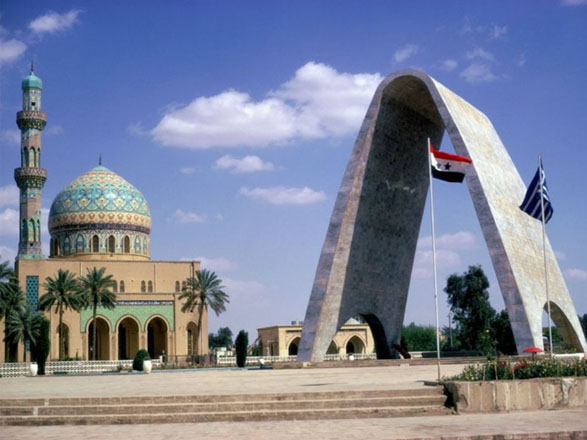Iraq's powerful Shia cleric Muqtada al-Sadr has called for a national emergency government and promised to "shake the ground" under the feet of advancing Sunni rebels, a day after Nouri al-Maliki, the prime minister, rejected any attempts to undermine his rule, Al Jazeera reported.
Sadr, whose movement, the Mahdi army, battled the US forces during Washington's nearly nine-year war in Iraq, also voiced opposition on Wednesday to US military advisers meeting with Iraqi commanders.
The cleric demanded "new faces" in a national unity government following April 30 elections that saw Maliki emerge with by far the most seats, albeit short of a majority.
"We also need to rush the formation of a national government with new names and from all backgrounds and not to be based on the usual sectarian quotas," he said in a televised address.
"I call upon all Iraqis to stop fighting and terrorising the civilians, the Iraqi government must fulfill the legitimate demands of the moderate Sunnis and stop excluding hem because they have been marginalised."
Al Jazeera's Imran Khan, reporting from Baghdad, said that the comments effectively said that Sadr wanted to get rid of Maliki and choose a new government.
"These comments are strong and will be noticed," he said, adding they showed a "huge rift" between what Maliki wants and what others believe.
Sadr promised his fighters would "shake the ground under the feet of ignorance and extremism".
Sadr's remarks came days after fighters loyal to him paraded with weapons in the Sadr City area of north Baghdad, vowing to fight the offensive by the fighters of the Islamic State of Iraq and the Levant.
ISIL and associated groups have overrun swaths of several provinces, killed nearly 1,100 people, displaced hundreds of thousands and threaten to tear the country apart.
Barack Obama, the US president, has so far refrained from carrying out air strikes on the rebels, as urged by Maliki, but American military advisers began meeting Iraqi commanders on Wednesday, with Washington having offered up to 300.
Washington has pressed for Iraq's fractious political leaders to unite in a national emergency government, and on Wednesday brushed off Maliki's insistence that such a move would be a "coup against the constitution and the political process".
Sunni tribal leaders have also called for a government to be formed which ignores the April election results, which they describe as a sham. However, Iraqi leaders have shown little sign of coming together.
US officials said they believed that Maliki was still committed to opening a process on piecing together a government on July 1.
"I think there's just been a little confusion about what he [Maliki] was ruling out here," said Marie Harf, a spokesman for the state department.
Washington has stopped short of calling for Maliki to go, but has left little doubt it feels he has squandered the opportunity to rebuild Iraq since American troops withdrew in 2011.






